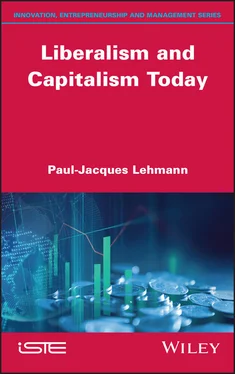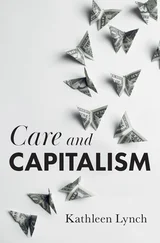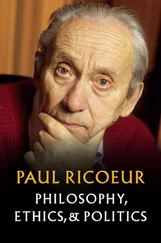De Tocqueville (2010) explained that the master has a high rank and substantial wealth that they know they cannot lose, and considers their servants as an inferior and secondary part of themself. Curiously, servants adopt the same point of view, sometimes identifying themselves as someone who belongs to their master, almost becoming an accessory to them, in their own eyes as well as in theirs. This feeling borders on the ridiculous, for it can go so far as to confuse two existences, the poor boasting of the situation of the rich, perhaps even more so than the latter. Thus, “these passions of masters, when they pass into the souls of menials, assume the natural dimensions of the place they occupy – they are contracted and lowered. What was pride in the former becomes puerile vanity and paltry ostentation in the latter. The servants of a great man are commonly most punctilious as to the marks of respect due to him, and they attach more importance to his slightest privileges than he does himself”.
Equality, then, exists only between peers. The only links established between social classes are of the order of precedence or reciprocal obligations, rank to be held and obedience and/or command.
Democracy is, above all, a political regime. De Tocqueville insisted in particular on the influence of this system when it is presented in parliamentary form, and on the equalization of human conditions: all citizens participate, through voting in elections, in political decisions, which means that thanks to democracy the rules governing society are not arbitrary, if they still exist, but correspond to what citizens really want. The risk of abuse of power is then minimized. Weber added that as a process of formal rationalization, democracy makes it possible to substitute negotiation for violent conflict. It is through the development of education for as many people as possible that democracy can be achieved.
The consequences go even further if the privileges of aristocratic society are withdrawn and everyone is allowed access to culture and education. Democracy is also a guarantee of political stability, thus of order, which gives political authorities the necessary legitimacy to vote, and subsequently to apply the laws vital to the existence of economic liberalism. In fact, governments elected by the people have the duty to protect by all means the freedom of each person by preventing the interference of anyone in the private domain.
In de Tocqueville’s view, democracy also corresponds to a fundamental change in the economic environment. The principles on which it is based quickly impose themselves on all economic actors and allow economic liberalism to function harmoniously. Conversely, political freedom is impossible without economic freedom, in particular without the freedom to undertake: it is only when economic need is freely expressed and satisfied that democracy can take hold since it is a source of individual responsibility and mutual respect, given that people are now obliged to live at their own risk. The result is a gradual elimination of the instability of the social hierarchy by reducing the differences in wealth and the fluidity of the structure of society.
Thanks to the equality of their conditions, the situation of master and servant changes in nature and new relationships are established between them. This type of society offers individuals the possibility of continually attaining a higher social position, and thus a higher level of well-being. “The two ranks mingle; the divisions which once severed mankind are lowered, property is divided, power is held in common, the light of intelligence spreads, and the capacities of all classes are equally cultivated; the State becomes democratic, and the empire of democracy is slowly and peaceably introduced into the institutions and the manners of the nation. […] Equality of conditions turns servants and masters into new beings, and places them in new relative positions”. It is no longer the same individuals and, above all, the same families that make up the two social classes.
Each social class has a different view of its positions: subordination and domination are no longer suffered and are all the better accepted as every individual, as we have just said, can, if they give themself the means, access any social status. Indeed, the democratic “social state” includes in its very nature a social mobility that is limitless in principle, whereas such a possibility is unlikely in aristocratic society governed by hereditary differences.
This evolution is normal, for there is no reason to think that servants form a separate people. They are the equals of their masters. They can, moreover, become, in their turn and at any time, masters. De Tocqueville believes that servants and masters are like officers and soldiers: apart from the army, which imposes a hierarchy, they are all citizens with no specific customs or morals, especially since there is no hierarchy in their ranks. If some have the right to command and others are forced to obey and serve, it is only by virtue of an agreement of their wills, in the form of a freely established contract that sets out the conditions of command and obedience and from which it is almost impossible for them to deviate. Moreover, this contract is limited in time and can be terminated. However, when he speaks of the labor contract, Weber is careful to emphasize that the existence of a formally free agreement between the employer and the workers does not in any way exclude a “relationship of domination“ that is manifested in work orders and directives.
While they remain equal as people and as citizens, they become inferior to one another by the effect of this contract, which is the determining element in the situation of each one who, by this very fact, commits to it: the master finds in it the origin of their power and the servant the only cause of their obedience. Indeed, there are still inequalities, but those that remain are better accepted, because at least in theory, one can take the place of the other. De Tocqueville (2010) then asserts that the members of homo democraticus benefit from statutory equality, as “men are born and remain free and equal in law. Social distinctions can only be based on common utility”.
Moreover, equality is progressive, because as it is applied at the level of the law and as morals and public opinion become convinced of its relevance, it encourages citizens to see and live as equals. “The spirit of equality that characterizes democracy allows citizens to see themselves as equal, or at least as similar, regardless of the real inequalities of their situation. They internalize equality as a norm of which the democratic unconscious makes an essential value!”
De Tocqueville took this opportunity to explain the difference between the democratic regime and the socialist regime. On the one hand, “Democracy extends the sphere of personal independence; socialism confines it. Democracy values each man at his highest; socialism makes of each man an agent, an instrument, a number”. On the other hand, with reference to the word “equality”: “Democracy aims at equality in liberty. Socialism desires equality in constraint and in servitude” 4 .
1.1.4. The economic consequences of democracy
De Tocqueville insists on the many economic consequences that democracy brings about by leading to the subjective progression of equality of conditions, which leads to the emergence of a middle class for which material well-being appears fundamental: democratic society is at the origin of the entrepreneurial spirit, the desire for wealth replacing the desire for glory. Moreover, the search for equality is self-feeding, because “the first and liveliest of the passions that equality gives rise to is the love of that same equality”. A race for equality never ceases to manifest itself, so as to possess more and more. A feeling of frustration very quickly appears, explained by the fact that each individual compares themself to someone who benefits from a situation just above their own. However, since equality is never total, frustration becomes general and perpetual. Indeed, “men will never establish any equality with which they can be contented. Whatever efforts a people may make, they will never succeed in reducing all the conditions of society to a perfect level; and even if they unhappily attained that absolute and complete depression, the inequality of minds would still remain, which, coming directly from the hand of God, will forever escape the laws of man” (de Tocqueville 2010).
Читать дальше












